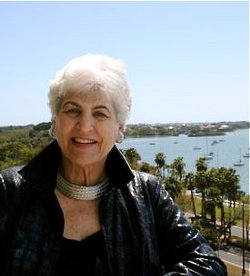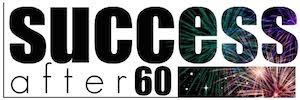Lunch with an expert in adult transitions
It’s not often one gets to have lunch with a true expert in adult transitions.
So, since I am one of a boat-load of baby boomers in the midst of rewiring/ redefining/reinventing oneself, I jumped at the chance to corral Dr. Nancy Schlossberg when I ran into here recently in Sarasota, FL.
You see, Nancy is an academic who doesn’t just have the book knowledge, she’s an individual who, herself, has live through numerous adult transitions, survived them and, as proof, written books about them. Nine, to be exact. And she’s working on a tenth.
“This one is titled Too Young to be Old,” the vibrantly attractive 86-year-old grinned. “It’s a culmination of all the others and will provide a roadmap to follow as you think about your future.”
If anyone can come up with this kind of helpful tool, it’s Nancy, professor emeritus at the University of Maryland who, upon retirement, continued her work as an author and consultant on adult transitions but, this go-around, for the general public.

Nancy Schlossberg
The creator of the highly-regarded Schlossberg Transition Theory, finds retirement can take six forms:
Continuers stay connected with past skills and activities but modify them to fit retirement, such as through volunteering or part-time work in their former field.
Adventurers start new activities or learn new skills not related to their past work, such as learning to play the piano or taking on an entirely new job.
Searchers learn by trial and error as they look for a niche; they have yet to find their identity in retirement.
Easy gliders enjoy unscheduled time and like their daily schedule to “go with the flow.”
Involved spectators maintain an interest in their previous field of work but assume different roles, such as a lobbyist who becomes a news junkie.
Retreaters, the only negative classification, become depressed, retreat from life and give up on finding a new path.
“It’s an evolving part of your development,” Nancy explains, “and the longer you live, the more your path will shift and change.”
With a long list of accolades, Nancy epitomizes career success yet suggests it’s a moving target.
“Success is like happiness,” she said. “It’s individual and hard to define. In an achievement model, success would depend on whether you achieved your goal. In life, we learn to modify our goals as needed. If we try to hold on to our old markers, we’re in trouble. It’s also a matter of what we value,” she concluded.
If so, in the final analysis, success is simply a matter of perspective. The important question for you then is, “What’s yours?”
For more about Nancy and her work, visit www.transitionsthroughlife.com.
© 2016 Advantage-Plus Resources, Inc. & SuccessAfter60.com. All rights reserved.

